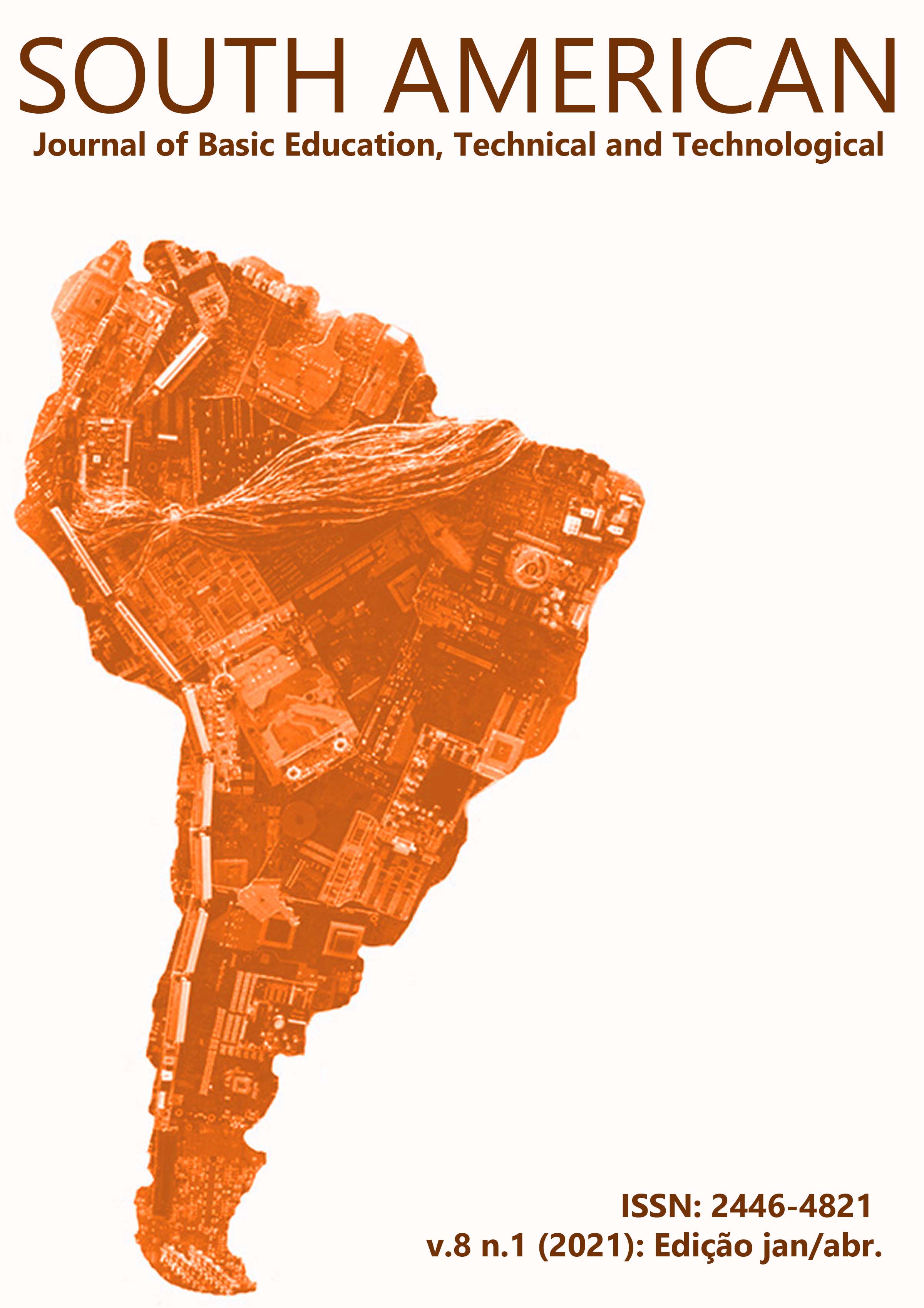The THE EDUCATIONAL PROCESS OF CHILDREN IN BLINDNESS CONDITION: THE MUNICIPALITY OF PONTA PORÃ, MATO GROSSO DO SUL
Keywords:
Educational Inclusion. Educational Process. Blindness ConditiontionAbstract
The research constitutes the clipping and analysis of the educational process of a blind child, in the municipality of Ponta Porã, Mato Grosso do Sul. An exploratory bibliographic / documentary study on the milestones of Special Education in Brazil and a field research with observation protocol on the educational processes of the blind child. The inclusion of this child in a regular room and in a room with multifunctional resources was addressed, as well as their care and integration in the school space. This research sought to identify and analyze the educational processes from the inclusion of the person in a condition of blindness, as well as to verify the pedagogical actions at school, as well as the actions of the municipal public administration aimed at training professionals to work with this type of special condition. The data was collected through a protocol for observing school spaces and the following public spaces that surround the child's life: municipal library and Convention Center where studies and festivities related to commemorative dates are held, consecutively. From the data, it was inferred about the inclusion and accessibility of people in conditions of blindness in the municipality of Ponta Porã. What can be observed is that the works related to the inclusion of this public in the school are not yet able to remedy and correspond to their real needs, just as the public spaces analyzed are not structured to receive them.
Downloads
References
[2] SILVA, Rita de Fátima da; SEABRA JÚNIOR, Luiz; ARAÚJO, Paulo Ferreira de. Educação Física Adaptada no Brasil: Da historia à inclusão educacional. São Paulo: Phorte Editora, 2008.
[3] SILVA, Rita de Fátima da; ARAÚJO, Paulo Ferreira de. Os Caminhos da Pesquisa em Atividade Motora Adaptada. São Paulo: Phorte Editora, 2012.
[4] MAZZOTTA, Marcos José da Silveira. Educação especial no Brasil: História e políticas públicas. São Paulo: Cortez Editora, 1996.
[5] BRASIL. Decreto nº 42.728, de 3 de dezembro. Institui a Campanha para a Educação do Surdo Brasileiro. Rio de Janeiro, 1957.
[6] BRASIL. Decreto nº 44.236, de 1º de agosto. Institui a Campanha Nacional de Educação e Reabilitação dos Deficitários Visuais. Rio de Janeiro, 1958.
[7] BRASIL. Decreto nº 48.252, de 31 de maio. Altera dispositivos do Decreto n° 44.236, de 1 de agosto de 1958. Brasília, 1960.
[8] BRASIL. Emenda constitucional nº 12, de 17 de outubro. Assegura aos deficientes a melhoria de sua condição social e econômica. Brasília, 1978.
[9] BRASIL. Constituição da República Federativa do Brasil. Brasília, 1988.
[10] BRASIL. Estatuto da Criança e do Adolescente, Lei no 8.069, de 13 de julho. Brasília, 1990.
[11] DECLARAÇÃO DE SALAMANCA: Sobre Princípios, Políticas e Práticas na Área das Necessidades Educativas Especiais, 1994, Salamanca-Espanha.
[12] Assembleia Geral da ONU. (1948). "Declaração Universal dos Direitos Humanos" (217 [III] A).
[13] BRASIL. Ministério da Educação. Lei de Diretrizes e Bases da Educação Nacional. LDB 9.394, de 20 de dezembro de 1996
[14] BRASIL. Diretrizes Nacionais para a Educação Especial na Educação Básica. Brasília, 2001.
[15] Política Nacional de Educação Especial na Perspectiva da Educação Inclusiva. Brasília: MEC/SEESP, 2008. BRASIL
[16] BRASIL. Decreto nº 6.949, de 25 de agosto. Promulga a Convenção Internacional sobre os Direitos das Pessoas com Deficiência e seu Protocolo Facultativo, assinados em Nova York, em 30 de março de 2007. Brasília, 2009.
[17] SEVERINO, Antônio Joaquim. Metodologia do trabalho científico. 23. ed. rev. e atual. São Paulo: Cortez, 2007.
[18] DANNA, Marilda Fernandes; MATOS, Maria Amélia. Ensinando observação: Uma introdução. Edicon, S. Paulo: 1982.
[19] BRASIL, Presidência da República. Lei n. 13.146, de 6 de julho de 2015. Institui a Lei Brasileira de Inclusão da Pessoa com Deficiência (Estatuto da Pessoa com Deficiência) Diário Oficial da União [da] República Federativa do Brasil. Brasília, DF. 2015.
[20] BATISTA, Cristina Abranches Mota. Educação Inclusiva: Atendimento Educacional Especializado para a Deficiência mental. Brasília, 2006.
[21] VIEIRA, Camila Mugnai; DENARI, Fatima Elisabeth. O que Pensam e Sentem Crianças não Deficientes em Relação às Deficiências e à Inclusão: Revisão bibliográfica. Revista FEEBA, v. 16, n. 27, p. 31-40, 2007.










